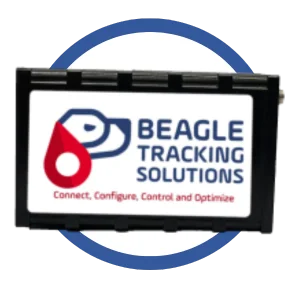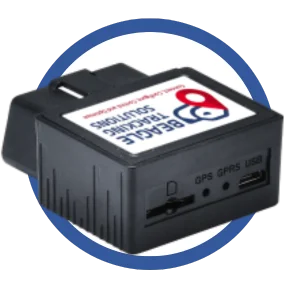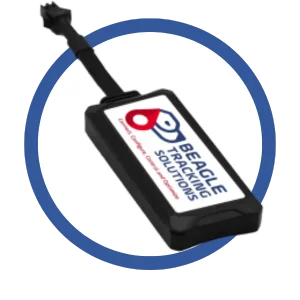Many vehicle owners turn to GPS tracker for added security, ensuring their cars are monitored and protected. However, if you’re concerned that your vehicle may have been equipped with a GPS tracker without your knowledge, it’s essential to know how to locate a GPS tracker on your car. Whether for privacy, safety, or simply out of curiosity, understanding how to detect a GPS tracker can give you peace of mind. In this blog, we’ll explain how to locate a GPS tracker on your car and why Beagle Tracking Solutions offers advanced tracking technology for those who need reliable and secure GPS solutions.
Why Would a GPS Tracker Be Installed on Your Car?
Before locating a GPS tracker on your car, it’s crucial to understand why someone might install one. GPS trackers serve multiple purposes, each tailored to specific needs, whether for personal, business, or security reasons. Understanding these reasons can help you choose the type of tracking device used and its intent.
Personal Use: Ensuring Safety and Peace of Mind
One of the most common reasons for installing a GPS tracker in a car is for personal use. Many people use GPS trackers to ensure the safety and well-being of their loved ones. For example:
- Tracking Family Members: Parents often install GPS trackers in their children’s vehicles to monitor their whereabouts and ensure their safety, especially if they are new drivers. Knowing a loved one’s location can also offer peace of mind in emergencies.
- Monitoring a Spouse or Partner: Some individuals may need to track a spouse or partner for security and relationship trust issues. This use, however, can be controversial and is typically discouraged unless both parties are aware and consent to the monitoring.
- Elderly Care: For elderly family members who may suffer from memory loss or dementia, GPS trackers offer a way to ensure they don’t wander off and can be found quickly if they get lost.
In these cases, GPS trackers are valuable tools for monitoring and securing individuals’ safety, especially in high-risk situations.
Business Use: Fleet Management and Operational Efficiency
GPS trackers are invaluable tools for businesses, particularly those with fleet management needs. From logistics companies to delivery services, the ability to track vehicles in real-time helps optimize operations and improve efficiency. Some ways businesses benefit from GPS trackers include:
- Fleet Tracking and Management: Companies that manage fleets of vehicles, such as delivery trucks, taxis, or service vehicles, use GPS trackers to monitor vehicle locations, optimize routes, and ensure timely deliveries. It helps improve customer service by providing accurate delivery estimates and monitoring driver behavior.
- Driver Performance Monitoring: GPS trackers can also monitor driver habits such as speeding, harsh braking, and idling. It enabling businesses to implement better driving practices, reduce fuel consumption, and lower maintenance costs.
- Efficient Route Planning: GPS trackers allow businesses to alter routes in real-time based on traffic, weather conditions, or road closures, ensuring that vehicles take the most efficient path to their destination. This reduces downtime and increases overall fleet efficiency.
- Cost Savings: By reducing fuel consumption, preventing unauthorized vehicle use, and improving route planning, businesses can save on fuel and maintenance, resulting in long-term operational savings.
For businesses, GPS trackers are essential for improving operational efficiency, reducing overhead costs, and boosting overall productivity.
Security: Preventing Theft and Ensuring Recovery
Another critical reason GPS trackers are often installed in vehicles is for security purposes, mainly to prevent theft. Vehicle theft is a considerable concern, especially in urban areas, and having a GPS tracker installed can significantly reduce the likelihood of a thriving theft. Here’s how GPS trackers help improve security:
- Stolen Vehicle Recovery: A GPS tracker can immediately help law enforcement locate its exact location if a vehicle is stolen. By providing real-time tracking information, GPS systems increase the chances of recovering the stolen car quickly.
- Anti-Theft Measures: Some advanced GPS trackers have immobilization features that allow the owner to remotely turn off the vehicle’s engine. It making it impossible for thieves to drive away.
- Geo-Fencing: Many GPS tracking systems allow users to set up geo-fences, and virtual boundaries around a specific location. The system immediately alerts the owner’s phone or email if the vehicle moves outside this designated area. This feature can be handy for preventing unauthorized use or theft.
For high-value vehicles, such as luxury cars or commercial vehicles, GPS trackers are often a necessary investment in security. They give owners confidence that they can track and recover their vehicles if they are stolen.
Signs Your Car May Have a GPS Tracker
If you suspect your car has a hidden GPS tracker, there are a few signs you can look for. The most common indicators include:
- Unusual Wires or Devices: GPS trackers often require wiring to power the device. It could be a sign of a GPS tracker if you notice unfamiliar wires near the car’s battery or under the dashboard.
- Unexplained Alerts: If you start receiving strange alerts or notifications on your smartphone, it might suggest that your car is being monitored with a GPS tracker.
- Poor Vehicle Performance: A GPS tracker may sometimes affect the car’s performance, especially if it’s drawing power from the vehicle’s electrical system.
How to Locate a GPS Tracker on Your Car
If you’re wondering how to locate a GPS tracker on your car, here’s a step-by-step guide:
1. Check for Common GPS Tracker Locations
Most GPS trackers are small and discreet, often hidden in areas that are not immediately obvious. Here are the typical places where GPS trackers are often installed:
- Under the Vehicle: Look for devices under the chassis or near the wheel wells. GPS trackers can be mounted with magnets, making them easy to hide under your car.
- Inside the Vehicle: Check under the dashboard, in the glove compartment, or near the car’s fuse box. These are common locations for hardwired GPS trackers.
- In the OBD-II Port: Some trackers are plugged directly into the OBD-II (Onboard Diagnostics) port, typically located beneath the dashboard near the driver’s side. A quick inspection of this port may reveal the tracker.
2. Use a GPS Tracker Detection Device
Consider using a GPS tracker detection device if you can’t find anything with a simple inspection. These devices can see the signal emitted by a GPS tracker. Walk around your car while using the detector, and it will alert you to any nearby GPS signals.
3. Look for a Power Source
A GPS tracker needs to be powered. Look for any unusual wires leading from the battery to hidden compartments, especially near the car’s electrical system or fuse box. If the tracker is hardwired, it will usually draw power from the car’s battery.
4. Check for Unusual Apps or Devices
Some GPS trackers link up to apps on your smartphone or other devices. If you notice any unknown apps or devices connected to your car, this could be a sign that it’s being tracked.
Why Use Beagle Tracking Solutions for Your Car?
At Beagle Tracking Solutions, we provide advanced GPS tracking devices that ensure the security and efficiency of your vehicles. Whether you’re tracking a fleet of trucks or want to ensure the safety of your car, Beagle Tracking Solutions offers reliable products that cater to various needs. Here’s why you should consider Beagle Tracking Solutions:
- Real-Time Tracking: Beagle’s GPS trackers provide real-time updates so you can continuously monitor your vehicle.
- Easy-to-Use Interface: With our online platform and mobile app, tracking your car or assets is incredibly easy, no matter where you are.
- Anti-Theft Features: Our GPS trackers are equipped with anti-theft features, such as immobilization and geo-fencing, to help protect your car from unauthorized movements.
- Affordable Solutions: Beagle offers cost-effective GPS tracking devices, making them accessible for individuals and businesses.
What to Do If You Find a GPS Tracker?
If you see a GPS tracker on your vehicle and you are unsure why it’s there, here’s what you can do:
- Consult a Professional: If you feel that your privacy has been violated, it’s best to consult with a professional mechanic or security expert who can help remove the device safely.
- Contact Authorities: If you suspect that the tracker was placed illegally, you may want to contact local authorities for further investigation.
Prevention with Beagle Tracking Solutions
If you’re concerned about unauthorized GPS tracking on your vehicle, Beagle Tracking Solutions offers solutions to keep you in control. By investing in our GPS trackers, you can ensure that you have the power to monitor your vehicle’s location and receive alerts for any suspicious activity. Our devices also allow you to set up geofencing boundaries, so you’re immediately notified if your vehicle moves outside an authorized area.
Conclusion
Learning how to locate a GPS tracker on your car is essential for maintaining your privacy and security. Whether you’re worried about a hidden tracker or want to prevent unauthorized tracking, understanding the process will help you take control of your vehicle’s safety. If you’re looking for reliable GPS tracking solutions, Beagle Tracking Solutions provides the latest technology in vehicle tracking, offering security, convenience, and peace of mind.
Get started now with Beagle Tracking Solutions and experience top-tier GPS technology for your vehicle, ensuring its safety and giving you complete control.
FAQs
1. How can I tell if a GPS tracker is on my car?
Look for unusual devices or wires under the dashboard, the fuse box, or the vehicle’s underside. GPS trackers are often hidden in discrete locations.
2. Can a GPS tracker affect my car’s performance?
A GPS tracker can sometimes draw power from the car’s electrical system, which may affect performance, especially if wired improperly.
3. What is the OBD-II port, and can a tracker be placed there?
The OBD-II port is under the dashboard and used for vehicle diagnostics. Some GPS trackers are plugged directly into this port for easy installation.
4. How can I prevent unauthorized GPS tracking?
Invest in a high-quality GPS tracker from a trusted provider like Beagle Tracking Solutions and regularly check your vehicle for any signs of tracking devices.
5. What should I do if I find a GPS tracker on my car?
If you believe the tracker was placed illegally, consult a professional mechanic to remove it or contact the authorities safely.



